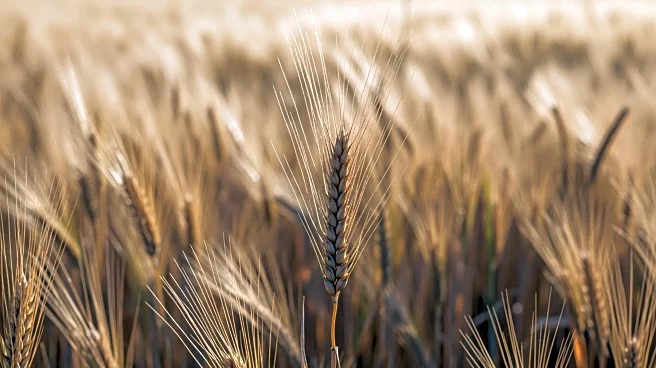What's Happening?
Jordan's state grain buyer has announced an international tender for the purchase of up to 120,000 tons of animal feed barley. This move follows a previous tender where Jordan purchased 60,000 tons of barley. The deadline for pricing offers is set for November
12, with shipping periods scheduled between December 1-15, December 31, and January 1-15, and January 16-31. In addition to the barley tender, Jordan has also released a separate tender for 120,000 tons of milling wheat, which closes on November 11. These actions are part of Jordan's ongoing efforts to secure grain supplies, as reported by European traders.
Why It's Important?
The tender for feed barley and milling wheat is significant for Jordan as it seeks to ensure food security and stabilize its grain supply amidst global market fluctuations. The purchase of large quantities of grain reflects Jordan's proactive approach to managing its agricultural needs and mitigating potential shortages. This move could impact international grain markets, influencing prices and availability. For traders and suppliers, Jordan's tenders represent an opportunity to engage in substantial trade deals, potentially affecting regional trade dynamics and economic relations.
What's Next?
As the tender deadlines approach, traders and suppliers will likely prepare competitive pricing offers to secure contracts with Jordan. The outcome of these tenders could influence future purchasing strategies and market conditions. Additionally, Jordan's actions may prompt other countries to reassess their grain procurement strategies, especially in light of global supply chain challenges. Stakeholders in the agricultural sector will be closely monitoring the results and subsequent market reactions.
Beyond the Headlines
Jordan's grain procurement strategy highlights broader issues of food security and resource management in the Middle East. The country's efforts to secure grain supplies underscore the importance of strategic planning in agriculture, particularly in regions susceptible to climate change and geopolitical tensions. This development may also encourage discussions on sustainable agricultural practices and international cooperation in food supply management.
















